|
Diseases of Poultry
By Ivan Dinev, DVM, PhD
|
VIRUS-INDUCED NEOPLASTIC DISEASES MAREK'S DISEASE
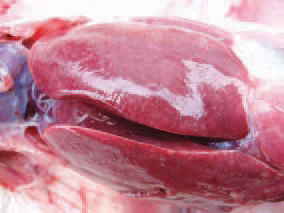
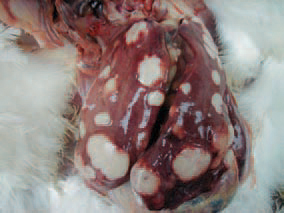
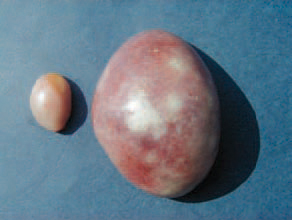
279.280.281.Acute (visceral) form.It is characterized by diffuse or nodular lymphomatous lesions in various viscera (liver, spleen, heart, kidneys, lungs, gonads, proventriculus, pancreas etc.), the skeletal muscles and the skin. MD affects mainly hens, and is rarely observed in turkeys. It is most commonly encoun-tered in birds at the age of 89 weeks and in layer hens. The cases at the age of 16-20 and 24-30 weeks are pre-dominant. MD is prevalent all around the world and in fact, all flocks are exposed to the effect of the aetiological factor.
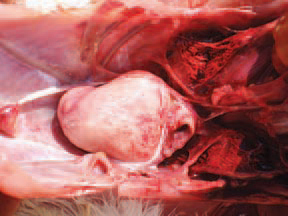
282.Diffuse lymphomatous growths in the heart, resulting in its transformation into an amorphous tumourous mass.
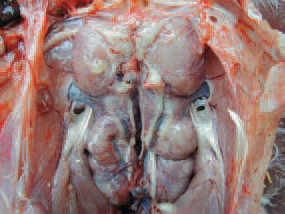
283.Bilateral enlargement of kidneys because of a diffuse lymphoid cell proliferation.
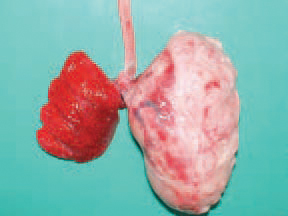
284.Neoplastically modified right lung in MD.
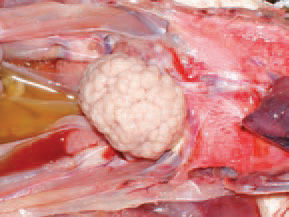
285.Typical cauliflower-like appearance of the ovary, distinctive for MD.
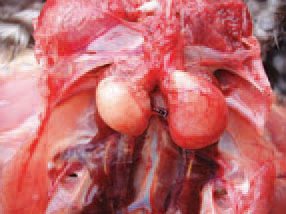
286.Marked asymmetry of testes on a cock following unilateral lymphoid cell proliferation.
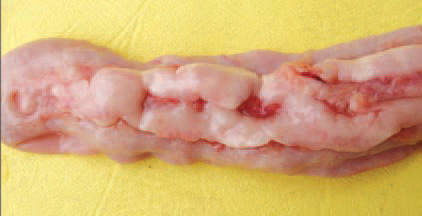
287.Diffuse neoplastic growths affecting the pancreas.
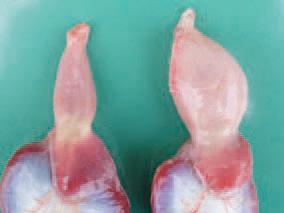
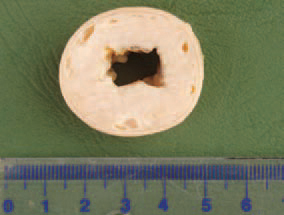
288.289.The manifold enlarged proventriculus with the shape of a round bottom flask (288) result of diffuse neoplastic growth and the severely narrowed lumen (289) are a typical finding in MD. The causative agent of MD is a type B cell associated herpesvirus (MDV). There are three MDV serotypes. The isolates of serotype 1 are widely distributed among hens and vary from highly virulent (w+) oncogenic to almost avirulent strains. The serotype 2 is common for hens and is not oncogenic. The isolates of serotype 3, known also as turkey herpesviruses (HVT) are naturally occurring in turkeys and are non-oncogenic. The three serotypes possess a significant cross reactivity.
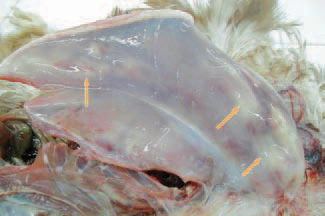
290.Multicentric MD tumours (arrows) prominating or seen through the superficial and deep pectoral muscles.
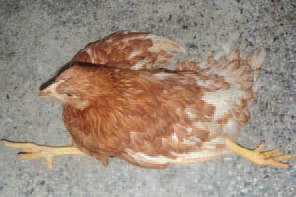
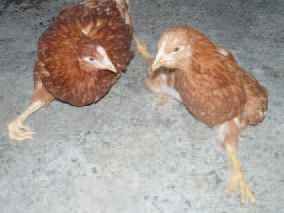
291.292.Chronic (classical) form. It is ecountered as neural type (fowl paralysis) or ocular type (ocular lymphomatosis). Clinically, the neural for is manifested with paralysis of limbs.
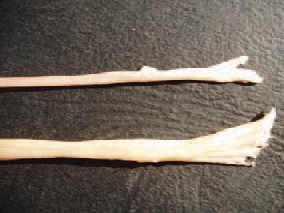
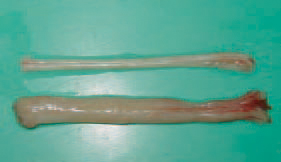
293.294.Pathoanatomically, unilateral or bilateral thickening of affected nerves, mainly diffuse and at a various extent, is observed.
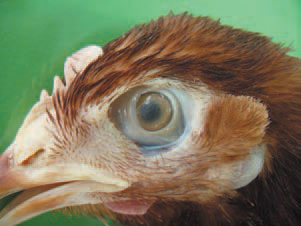
295.The ocular form is characterized with iris depigmentation, deformation of the pupil, sometimes opacity of the cornea and blindness.
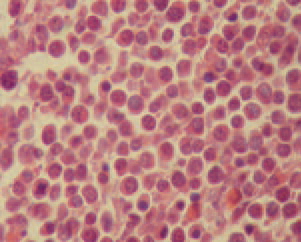
296.Histologically, pleiomorphic lymphoid cell proliferations in affected viscera, nerves or eyes are observed. The Marek's disease is probable provided that at least one of the next conditions is present: peripheral nerves augmentation, depigmentation of the iris or irregularly-shaped pupil; lymphoid tumours in various organs in birds younger than 16 weeks; presence of visceral tumours in birds at the age of 16 weeks and older; simultaneous lack of alterations in the bursa of Fabricius.
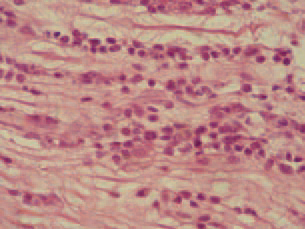
297.Microscopical view of lesions in a peripheral nerve consequent to MD.
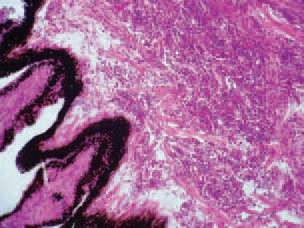
298.Lymphoid cell proliferations in the iris and the ciliary muscles in the ocular form of MD. Three classes of viruses are able to protect fowl from MD: attenuated serotype 1 of MDV-cell associated vaccines; HVT could be used for preparation of cell-free lyophilized vaccines; naturally apatho-genic isolates of serotype 2 cell associated vaccines. The vaccines against MD provide over 90% protection. HVT gives excellent results but in case of failure, a bivalent vaccine could be used.
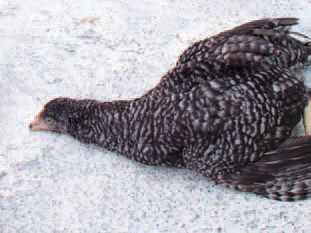
299.Transient paralysis. They are observed in chickens and hens, especially non-vaccinated against MD. Most cases present the classical form manifested by flaccid paralysis of the neck and legs for 143 days followed by complete recovery. The syndrome has to be differentiated from the neural form of MD on the basis of its transient nature and the flaccid, but not spastic paralysis.







